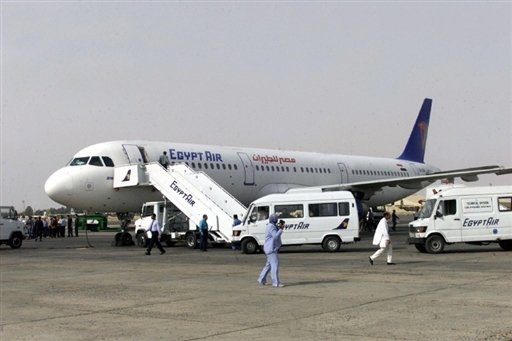OXFORD, England: Many learned people have stood in this hall and spoken of the values that are shared between the Abrahamic faiths. That is not my purpose today. I want to talk – I hope in a spirit of humility and respect – from my perspective as Foreign Secretary, about the political process of building coalitions and winning consent overseas for foreign policy goals. This question does not only arise in respect of our relations with Muslim-majority countries, but today I want to explore how we, the British government, work with those in Muslim-majority countries – governments and people – whose values we may not entirely share.
My argument starts from recognition of difference. It is based on the belief that there can be no single answer to the question of how we should live. I do believe there are universal values that can be traced through diverse cultures and religions. I do believe there are basic human rights that must be observed by every government and every individual. But as Prime Minister Gordon Brown has powerfully argued there is a global society where universal values and rights still leave room for extraordinarily rich and different ways of living.
Our challenge is to understand that while there is no single template for a good life, there must be a template – and a better template than the one we have now – for people of diverse views, that derive from different belief systems, to work together.
It is my privilege to represent a country of extraordinary diversity and remarkable history. But it is as well to be clear about the prejudices that British history generates, not just in Muslim-majority countries, but elsewhere too. Decisions taken many years ago on King Charles Street are still felt on the landscape of the Middle East and South Asia. Lines drawn on maps by colonial powers were succeeded, amongst other things, by the failure (it has to be said not just ours) to establish two states in Palestine. More recently, the invasion of Iraq and its aftermath aroused a sense of bitterness, distrust and resentment.
These events are associated with a history of relations between Europe and the Muslim world that have been characterized by conquest, conflict and colonialism. But there is a different tale to be told. It does not erase the conflict, but it does establish a different narrative.
It is a history not of conflict or confrontation, not even of coexistence or tolerance, but of interchange and mutual contribution. It is the history of 17th century Iran as told so impressively in the current British Museum exhibition; of 13th century Andalusia, Norman Sicily or the European enlightenment; of St. John of Damascus, Christian advisor to an Umayyad ruler; of dialogue between Byzantine emperor and Arab caliph and the discovery of Greek thought by early Muslim scholars. These are histories of openness, diversity and achievement; of cultures coming together and learning from each other.
Security in today s world can no longer be guaranteed by the world s only superpower, or even a concert of great powers. The threats from climate change, terrorism, pandemics and financial crisis are too large and too diffuse.
Security therefore depends on two indispensable features. First, we need the broadest possible coalition of states and political movements. That means being prepared to encourage reconciliation with organizations whose values we may not share but who are prepared to pursue common interests.
Second, we need the consent of citizens. In centuries past, alliances were forged by monarchs, treaties were signed by kings and honored – or not – by the ruling elite. But power in the modern age has escaped such a firm grasp.
In setting out these two aims, the tension between them is clear. The widest possible coalition will, at times, include groups whose aims we do not share, whose values we find deplorable, whose methods we think dubious. But it will be impossible to win the consent of peoples if we cannot demonstrate consistency and certainty in the application of our values. A rigidly consistent application of our values would surely exclude from the conversation organizations without which progress is impossible. Yet if we engage all the relevant parties, with no regard for our values or theirs, we are open to the charge of the purest realism.
The way through the tension lies in our commitment to politics and the rejection of violence. It is always when silent consent for violence is withdrawn – in favor of politics – that the actions of diplomacy have the chance to stick. Even in countries that are not democratic, the actions of governments are constantly conditioned by the demands of their people.
This, a deep belief in politics, is the bedrock. The nobility of politics is contained in the negotiation of conflict through conversation, the replacement of dispute by compromise and of force by persuasion.
This is not an evangelical impulse. Politics begins where people with whom we share a world disagree, sometimes on matters of fundamental importance. Between the secular liberal and the person whose faith is inseparable from their politics, there is no easy assimilation. Neither is there any way of judging who is right . There is just a dialogue and a search for common ground.
David Miliband is the Secretary of State for Foreign & Commonwealth Affairs. This abridged article, part of a speech to the Oxford Centre for Islamic Studies, is distributed by the Common Ground News Service (CGNews) with permission from the Foreign and Commonwealth Office. The full text can be found at www.fco.gov.uk.
